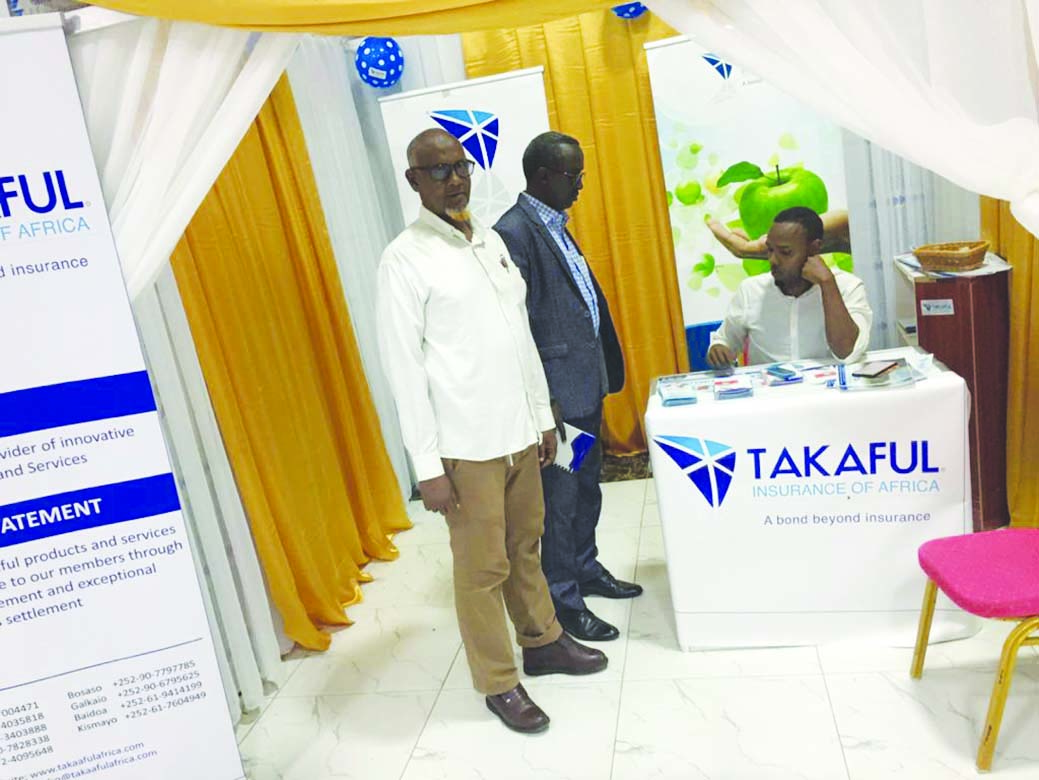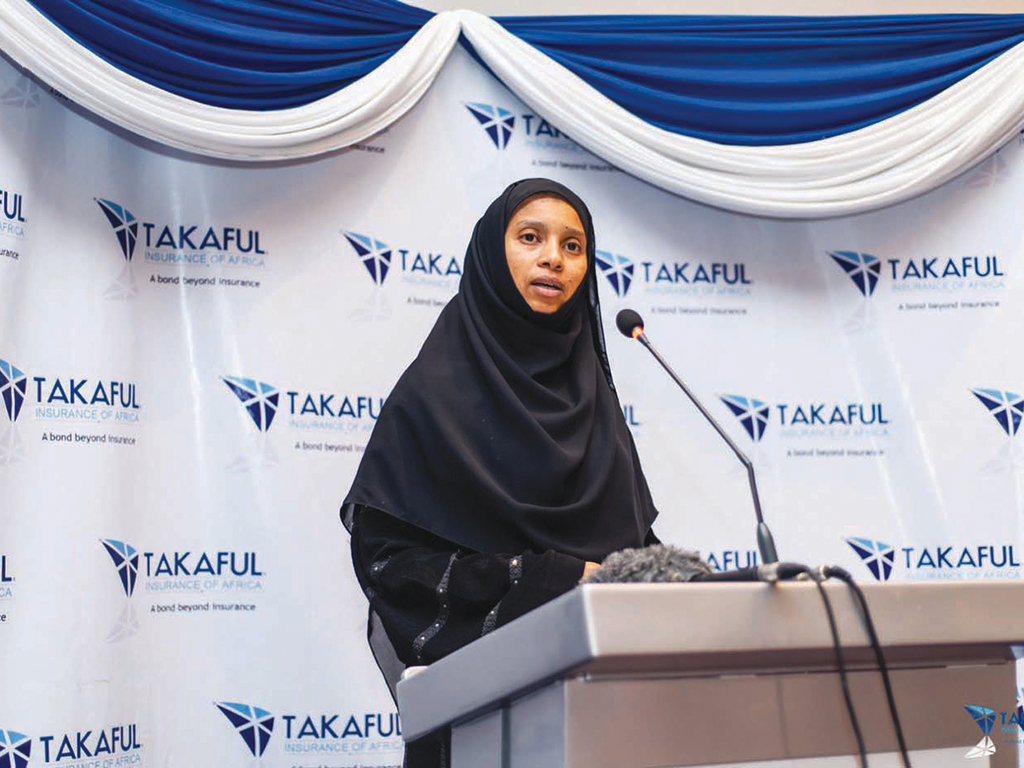#16
TAKAFUL INSURANCE OF AFRICA
By Sumayya Hassan, CEO – TIA
Environmental responsibility is part of Takaful Insurance of Africa’s (TIA’s) strategy in stepping towards a United Nations Sustainable Development Goal (UN SDG)-oriented corporate outlook. TIA has embraced many Go-Green initiatives to lessen our environmental impact, as part of our efforts to contribute to environmental protection and climate resilience.
Through these programs, we have implemented and continue to develop and adapt to environmentally responsible company practices and behaviours. We offer climate resilience products to pastoralists in the Arid and Semi-arid Lands (ASALs). We are digitising our internal operations in our journey to being a largely paperless operation by the end of 2023. We have adopted a policy for the management of e-waste, and all of our electronic trash is recycled and/or disposed of responsibly.
We have partnered with a virtual telehealth company that provides participants with access to affordable, accessible round-the-clock medical care eliminating the need to travel to hospitals. Virtual telehealth services are a contributor to the global effort to achieve Net Zero emissions, while also benefiting the environment from the decreased use of paper to record prescriptions and other information. We have implemented energy efficient practices such as the use of an automatic switchover to turn off data centre cooling system, which significantly reduces energy consumption, and reliance on electricity.We are educating staff members about the benefits of environmentally friendly responsible living options, such as promoting the usage of non-disposable packaging and utensils rather than single-use plastic alternatives. This corresponds to SDG #14 (Life Below Water) as well as SDG #15 (Life on Land). Our company’s tagline, ‘A Bond Beyond Insurance’, is aligned with our social impact strategy.
In order to assist the SDG #8 (Decent work and economic growth) and SDG #13 (Climate Action), we chose to give priority to our participants in the arid and semi-arid lands (ASALs) of Kenya: the target users for whom we have been delivering the Index-Based Livestock Takaful (IBLT) product. We have been supporting the local communities in these areas with food, water and livestock feed during a time of extreme hardship brought on by the drought that is still wreaking havoc in these areas today.

Our Social Takaful program contributes to achieving SDG #1 (No Poverty) SDG #4 (Quality Education), SDG #5 (Gender Equality) and SDG #8 (Decent Work and Economic Growth). We are committed to strengthening our efforts as we continue to target our next beneficiary groups; the vulnerable in our community such as the widows and orphans, unemployed youth and people with disabilities (PwD) who live within Nairobi’s informal settlements. The emphasis will be on basic education, business education, skill sharing, mentorship and economic empowerment initiatives.
We remain keenly focused on the customer journey and are constantly learning, unlearning and finding ways to improve and do better. How we serve our customers, shareholders, employees and the general public must be a source of confidence in the integrity of our brand, which is the foundation of our solid reputation. This trust is founded on us keeping our word in line with our Shari’ah principles which inform our processes, our values and our goals.
The TIA Code of Conduct encompasses our corporate culture. The Code emphasizes that fairness towards customers and transparent communication about our products and services, including their limitations, maximizes our chances to earn our customers’ trust. This is expressed through our commitment to standardising processes and controls for communication, claims management, monitoring and review, and regularly updating the same to reflect regulatory developments.

The TIA standard for customer protection lays out a set of fundamental principles to guarantee fairness, transparency, information and value to customers. These principles include onboarding documentation, surplus payments, commissions, remuneration, product oversight and governance activities. It also describes the specific sales compliance risks that our business segments face. There is a greater risk of data leaks and security breaches when manual processes are replaced with digital ones. Data security is extremely important to TIA, and we are constantly taking steps toward reducing the risks associated with data management and security. Our digital infrastructure is powered by robust technologies in order to protect our participant’s data safety, and the same is required from our third party service providers, contractors and partners.
TIA, under my leadership, recognizes that it is a part of the larger Kenyan community. Being a responsible corporate entity means that we are cognizant of our impact on society and the environment and thus we continue to take steps to minimise negative impacts and maximise positive contributions by adhering to the law and promoting ethical standards in our business practices.
















